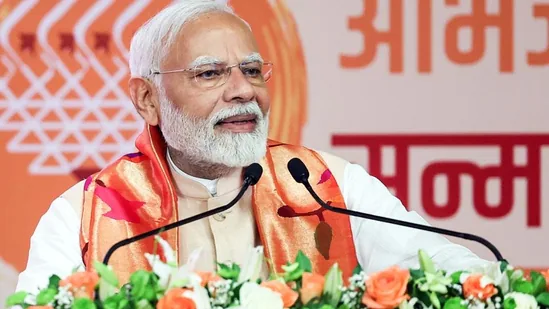Prime Minister Narendra Modi has called attention to the increasing threats posed by digital frauds, cybercrimes, and the misuse of AI technologies. In his address at the 59th All India Conference on Director Generals/Inspector Generals of Police, he emphasized the urgency of creating robust frameworks to safeguard individuals and institutions in a rapidly evolving digital landscape. Modi highlighted the double-edged nature of technology, which, while transformative, also brings risks that require global cooperation and stringent governance measures.
Cybersecurity Threats in the Digital Era
With the proliferation of digital platforms, cybercriminals have become more sophisticated, exploiting vulnerabilities to conduct identity theft, data breaches, and financial fraud. Modi pointed out that such crimes are no longer localized but global, necessitating cross-border collaboration. Nations must work together to create standardized cybersecurity protocols and share threat intelligence to mitigate risks effectively.
Challenges of AI Misuse
Artificial intelligence, while offering immense potential in sectors like healthcare, finance, and education, can also be exploited for harmful purposes. Deepfakes, AI-generated misinformation, and cyberattacks powered by AI algorithms pose serious risks to democratic processes and societal trust. Modi stressed the importance of ethical AI governance, calling for the development of frameworks that prevent misuse while fostering innovation.
Data Protection and Privacy
Another critical aspect of Modi’s address was the need for stronger data protection laws. He underscored the risks associated with unauthorized access to sensitive data, advocating for policies that emphasize user consent, data minimization, and the right to privacy. Such measures would help ensure that individuals’ personal information is not misused in the digital realm.
Building Cybersecurity Awareness
Modi also highlighted the importance of cybersecurity education for citizens. As digital tools become integral to daily life, users must be equipped to recognize and protect themselves from potential threats. Educational initiatives at schools and universities could play a vital role in building a digitally literate and secure society.
Public-Private Partnerships
The Prime Minister emphasized that combating cybercrimes and ensuring digital security require collaboration between governments, tech companies, and international organizations. Public-private partnerships can help create scalable solutions, such as ethical AI practices, transparency in algorithms, and enhanced accountability for technology providers.
A Global Call for Action
Modi concluded by urging the global community to come together to address these challenges. He reiterated the importance of balancing innovation with responsibility, ensuring that technological advancements contribute positively to society. By fostering international cooperation, strengthening regulations, and raising public awareness, the world can create a digital ecosystem that is both secure and equitable.
The Path Forward
As India leads initiatives like Digital India and the National Cyber Security Strategy, it has positioned itself as a global player in tackling digital threats. Modi’s vision for a secure and ethical digital future aligns with these efforts, ensuring that technological progress benefits everyone without compromising safety or trust.
Through collaboration and comprehensive frameworks, India aims to set a benchmark for the responsible use of technology, inspiring other nations to follow suit.

